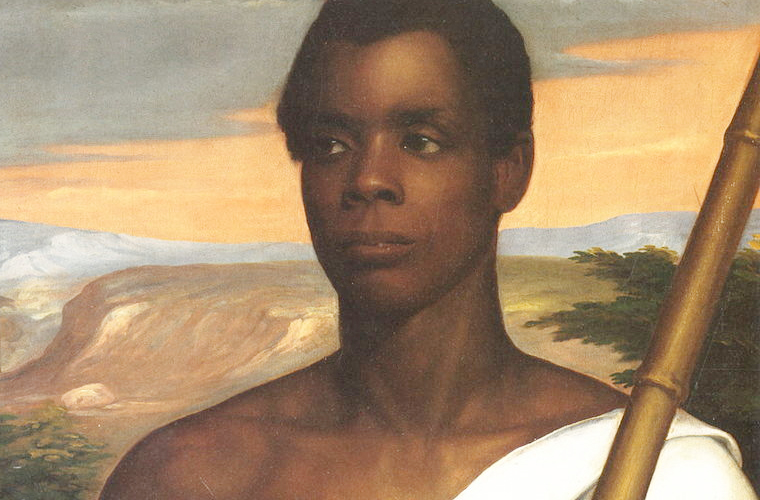Joseph Cinque, the son of a Mende headman in the village of Mani, located in modern-day Sierra Leone, was primarily known as a rice farmer and trader. However, his life took a drastic turn when he was enslaved for debt and subsequently sold to the notorious Spanish slaver Pedro Blanco. This transaction took place on Lomboko Island at the mouth of the Gallinas River in April 1839. Following his enslavement, Cinque was transported to Havana, where he, along with 51 others, many of whom were also Mendians, was resold. Subsequently, they were shipped aboard the coasting schooner Amistad, which was bound for the Cuban sugar plantations near the port of Guanaja, Puerto Principe.
These events marked the beginning of a tumultuous and harrowing journey for Cinque, as well as for the others who found themselves in similar circumstances. The subsequent events that unfolded would not only shape the course of their lives but also have a profound impact on the larger historical narrative surrounding slavery and human rights. The story of Joseph Cinque serves as a poignant reminder of the resilience and fortitude exhibited by individuals who were subjected to the horrors of the transatlantic slave trade. It also underscores the enduring legacy of those who fought against injustice and sought to assert their basic human rights in the face of seemingly insurmountable odds.
Cinque’s experience stands as a testament to the strength of the human spirit and the unwavering determination to seek freedom and justice. His journey, fraught with adversity and hardship, ultimately became a symbol of resistance and resilience in the face of oppression. The legacy of Joseph Cinque and those who stood alongside him serves as a powerful reminder of the enduring struggle for freedom and equality. Their courage and tenacity continue to inspire generations, underscoring the importance of upholding the fundamental principles of human dignity and justice for all.
In recounting the life of Joseph Cinque, it is essential to recognize the broader historical context within which his story unfolds. His experiences shed light on the complex and often brutal realities of the transatlantic slave trade, while also highlighting the indomitable spirit of those who resisted and persevered in the face of unimaginable adversity. As we reflect on the life of Joseph Cinque, we are reminded of the ongoing imperative to confront and address the legacies of slavery and oppression. His story serves as a call to action, compelling us to uphold the values of freedom, equality, and justice for all individuals, regardless of their background or circumstances.
In conclusion, Joseph Cinque’s life embodies the enduring struggle for freedom and justice in the face of adversity. His legacy continues to resonate as a testament to the resilience of the human spirit and the universal quest for dignity and equality.

